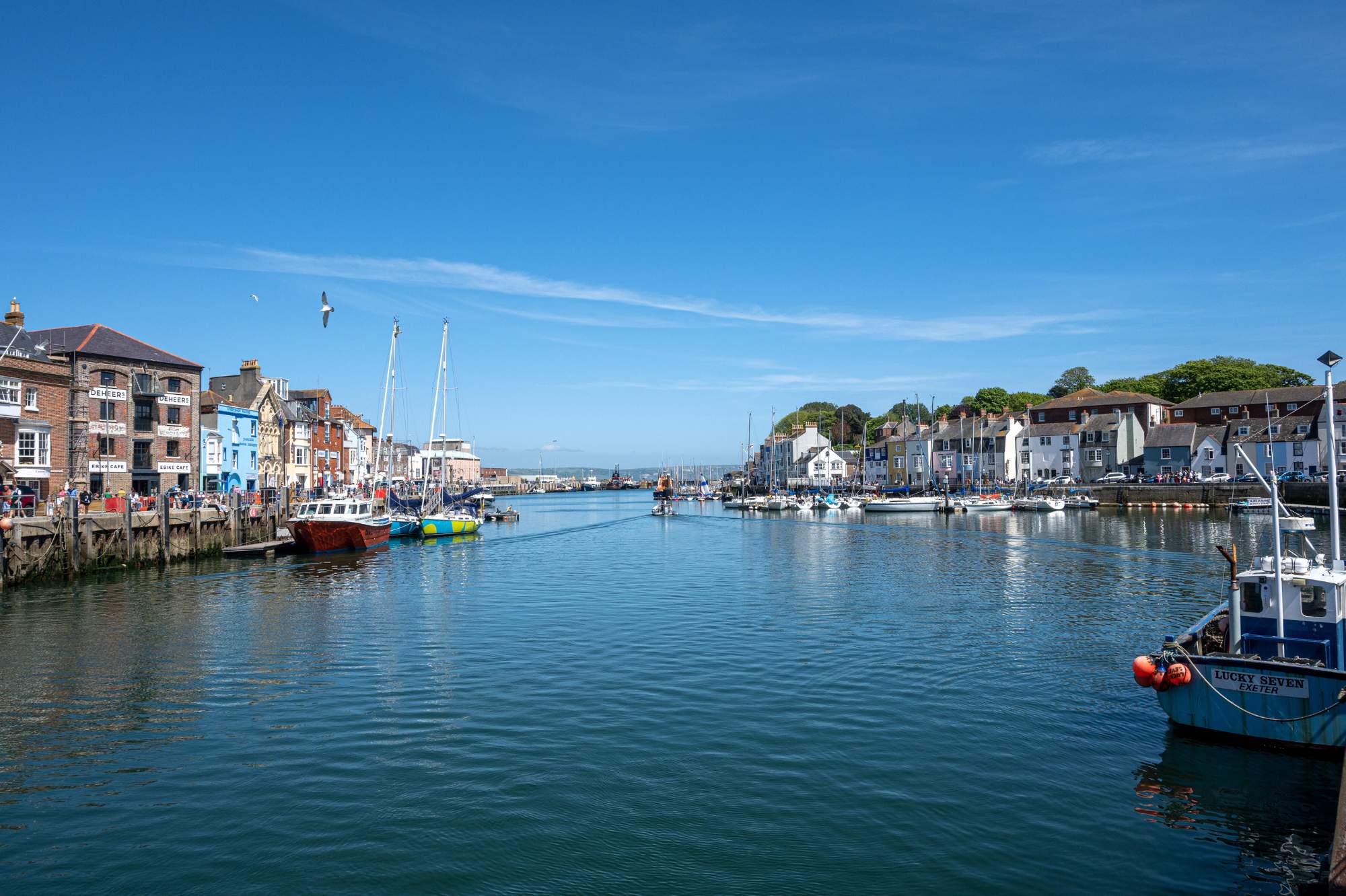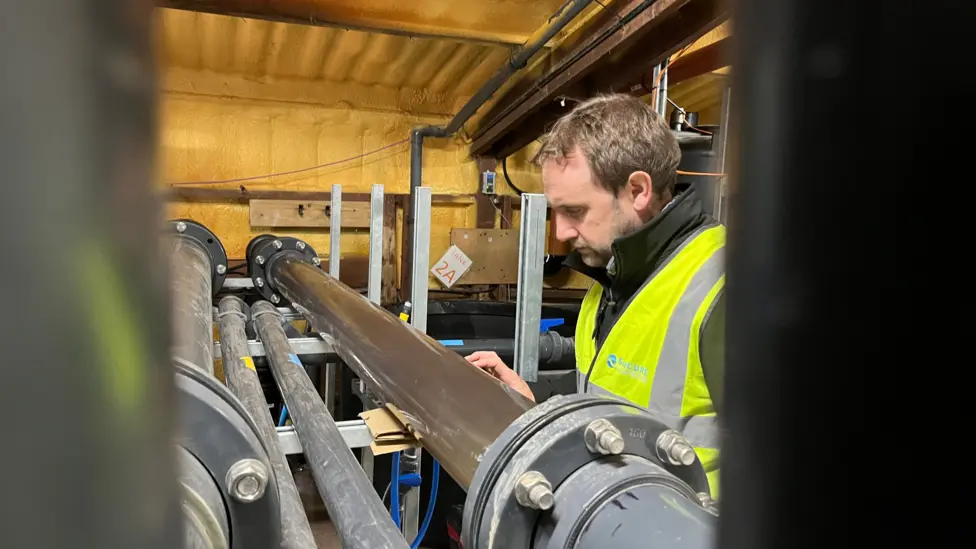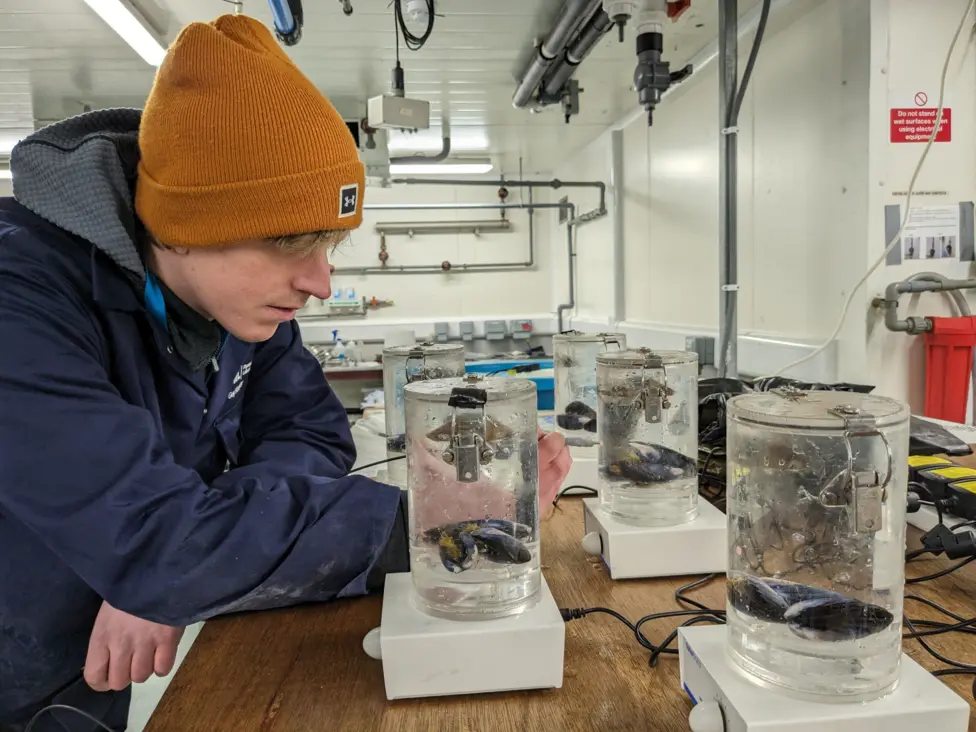Story
MEDIA: project to suck carbon out of sea begins in UK
22 April 2025
Could carbon removal from the sea help tackle climate change? PML scientists and colleagues from the University of Exeter have made headlines over the weekend with the groundbreaking SeaCURE project pilot plant now operative in Weymouth, Dorset.

Image caption: Weymouth, Dorset, UK – where the SeaCURE pilot plant has been built.
The SeaCURE pilot plant – which has been built at Weymouth SEA LIFE Centre on the South Coast of England – has been funded with thanks to a £3 million grant from the UK Government’s Department for Business, Energy & Industrial Strategy (BEIS), as part of its search for technologies that fight climate change.
It is one of 15 pilot projects being backed in the UK as part of efforts to develop technologies that capture and store greenhouse gases.
The ocean currently absorbs around 25% of the carbon dioxide (CO₂) – the most prolific greenhouse gas – emitted each year by humans. SeaCURE’s approach seeks to enhance this capacity further by extracting CO₂ from seawater, thereby enabling further absorption of atmospheric CO₂.
The process involves acidifying seawater in order to convert dissolved carbon into gaseous CO₂, which is then captured and stored. The treated water is subsequently rebalanced using alkaline substances before being returned to the marine environment. Although the current scale is modest – removing around 100 tonnes of CO₂ annually – the project aims to assess the feasibility of expanding this method as part of broader carbon dioxide removal strategies.

Image caption: In an exclusive feature with the BBC, SeaCURE Project Co-lead Professor Tom Bell, Ocean-atmosphere biogeochemist and lead on Air-Sea Exchange research at Plymouth Marine Laboratory, hosted a tour of the pilot plant.
In parallel, SeaCURE scientists, including Guy Hooper – PhD researcher with PML and the University of Exeter – are studying potential ecological impacts. As marine organisms such as phytoplankton and molluscs depend on dissolved carbon for processes like photosynthesis and shell formation, understanding and mitigating any adverse effects is essential.

Image caption: Guy Hooper – PhD researcher with PML and the University of Exeter – is researching the potential environmental impacts of Ocean-based Carbon Dioxide removal. Image credit: BBC.
This work represents an important step in the development of ocean-based carbon dioxide removal technologies. Continued scientific evaluation will be key to ensuring that such interventions are both effective and environmentally responsible.
Related information
SeaCURE is led by the University of Exeter’s Global Systems Institute, alongside Plymouth Marine Laboratory, Brunel University London and industrial partner Eliquo Hydrok.
The SeaCURE pilot plant has been built at the SEA LIFE centre in Weymouth, thanks to a £3 million grant from the UK government’s Department for Business, Energy & Industrial Strategy (BEIS) through its Net Zero Innovation Portfolio as part of the Direct Air Capture & Greenhouse Gas Removals Innovation Programme.
